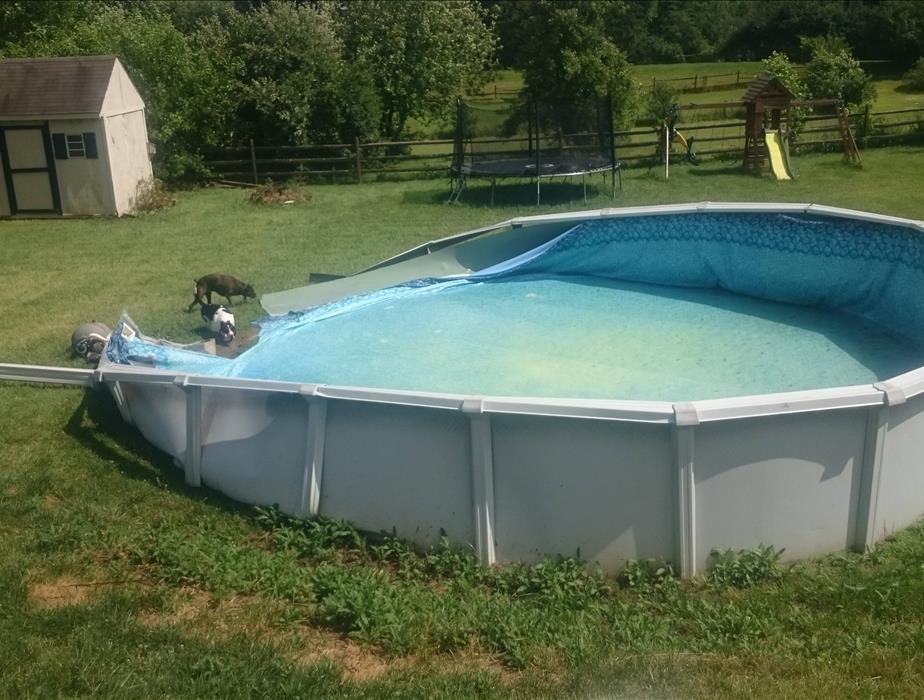Antioch Residents Protect your home from above ground pool flooding.
6/22/2022 (Permalink)
An overflowing pool is normally not a good sign. The main cause of overflowing pools is usually a large rainstorm. What happens if above ground pool overflows usually depends on the landscaping you have surrounding your pool. Ideally, if you have a proper drainage system, the excess rainwater will only mess with your pool water chemistry. But large quantities of precipitation combined with an overflowing pool and poor drainage can cause problems such as flooding, structural damage to the surrounding buildings as well as out of balance swimming pool water chemistry. No fun. This article will go over some steps to prevent a heavy-duty rainstorm from causing a massive headache.
Proper Drainage
Ideally, drainage was something that was considered before the swimming pool was ever installed. The potential energy of such a large quantity of water could be devastating if it were all to be unleashed at one time. But even small amounts of water leakage could cause problems for your house, yard, and other structural elements. Making sure your yard is landscaped properly to allow for easy drainage is paramount for flood prevention. Water should run away from your house and other structures. It’s also important to make sure your deck or house or shed rooftop doesn’t empty into your swimming pool when it rains. Not only will this prevent overflowing, but it’ll make it much easier to keep your water properly balanced.
Overflow Prevention
If you know your area is going to get hit with large amounts of rain you can take the preemptive step of lowering your water level by a few inches. This will prevent pool overflow and allow your yard to deal with the rainfall without the added pressure of your pool emptying out onto it as well. A little prevention can save you a lot of trouble. Keeping an eye on the weather report is an easy alternative to backyard flooding.
The Problem with Rainwater
Even if your pool doesn’t overflow, a large amount of rainwater can seriously mess with your water chemistry. Rainwater is typically acidic and can cause the pH levels of your swimming pool to begin to drop. This can cause a chain reaction of events which can make pool maintenance a huge nightmare. Low pH not only makes the water cloudy and uncomfortable for swimmers, it causes chlorine to break down which allows algae and bacteria to grow. Over the long term, low pH can cause pool components to rust, grout, and concrete to etch and cause the liner to weaken and deteriorate. That’s why it’s important to rebalance your water chemistry as soon as possible after a large rainfall. The longer you wait to do this, the harder it will be to get things balanced and the more likely your pool will sustain damage.






 24/7 Emergency Service
24/7 Emergency Service
